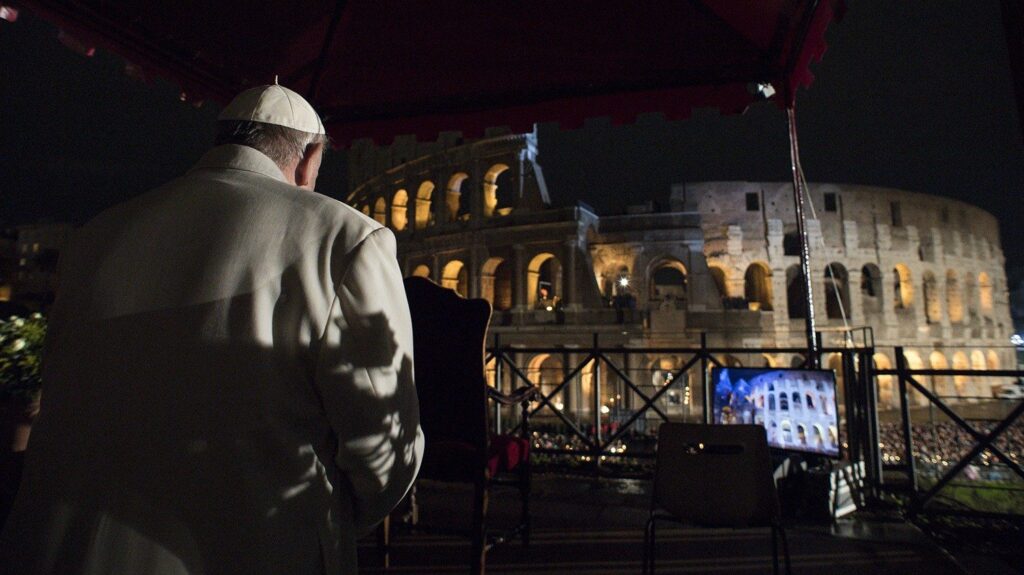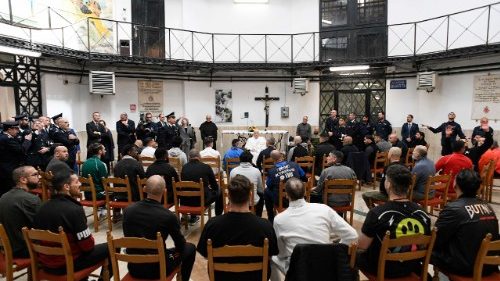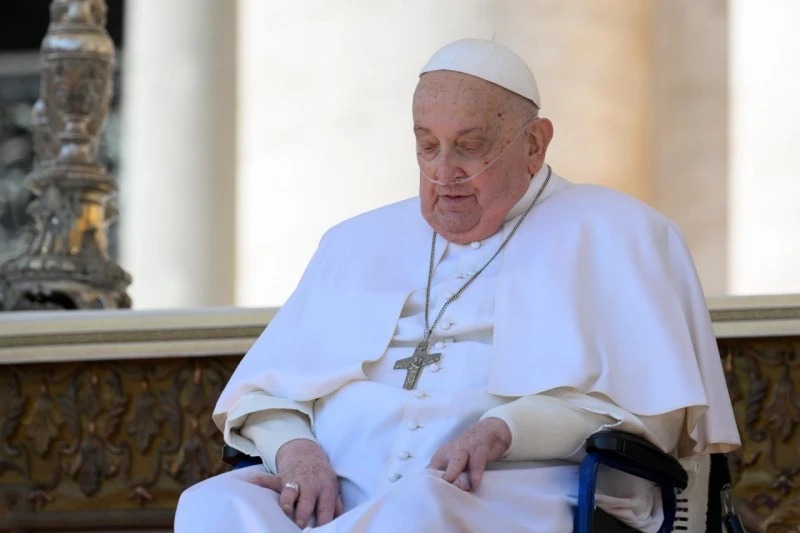Francis Promotes Spiritual and Pastoral Renewal in Vatican Diplomacy
The Pope reforms the Pontifical Ecclesiastical Academy, the training center for the Holy Father's future representatives, to bring them closer to Christ, the Church, and the world

In a further demonstration of his desire to reform the Church from within, Pope Francis has taken a significant step by promulgating a chirograph—a letter signed by his hand—establishing new guidelines for the Pontifical Ecclesiastical Academy, the institution responsible for training future diplomats of the Holy See.
The document, dated March 25, 2025, the Solemnity of the Annunciation of the Lord, clearly expresses the Pontiff’s intention to profoundly renew the formation of priests who will be called to serve as papal representatives throughout the world. Francis insists that these should not be mere officials but men of God, with a profound spirituality, rooted in love for the Church and with a clear awareness of their evangelizing mission.
“The Church needs pastors with a missionary soul, guided by a pastoral charity that brings them close to the joys and sufferings of the People of God,” the Holy Father notes.
The reform proposed by Francis has several key pillars. First, a comprehensive formation that combines academic and diplomatic preparation with a solid spiritual life. Second, missionary experience in peripheral ecclesial contexts, as he had already established in 2019, so that future nuncios can experience firsthand the reality of the peoples to whom they will be sent. And, finally, a constant call to humility and service, far from any ambition or privilege.
The Holy Father concludes his chirograph by recalling that “the papal representative does not represent himself, but Christ and his Church.” Therefore, it calls for formation to be deeply rooted in the Word of God, the Eucharist, priestly fraternity, and constant spiritual accompaniment.
This reform of the Pontifical Ecclesiastical Academy is framed in the spirit of the upcoming Jubilee of 2025 and in Pope Francis’ vision of a Church that is outgoing, missionary, close, poor, and for the poor. It represents a new step in the transformation of the Vatican’s diplomatic service, which aims to be at the service of peace, justice, and universal brotherhood.
Full text
CHIROGRAPH
of the Holy Father
reforming the
PONTIFICAL ECCLESIASTICAL ACADEMY
The Petrine ministry, in its service to the entire Church, has always demonstrated fraternal concern for the local Churches and their Pastors, so that they can experience the communion of truth and grace which the Lord established as the foundation of his Church.
In the constant effort to bring the closeness of the Pope to peoples and Churches, the Papal Representatives sent to different nations and territories are a point of reference. They are the custodians of that solicitude which moves from the centre to the peripheries, to make them sharers in the Church’s missionary outreach, and then to lead them back to that centre with their needs, reflections and aspirations. Even at times when the shadows of evil appear to infuse every action with confusion and distrust, they remain “the vigilant and lucid eye of the Successor of Peter for the Church and the world” (FRANCIS, Address to Participants in the Meeting of Papal Representatives, 17 September 2016). Called to make felt the presence of the Bishop of Rome, the “perpetual and visible principle and foundation of the unity both of the Bishops and of the whole company of the faithful” (SECOND VATICAN COUNCIL, Dogmatic Constitution Lumen Gentium, 23), they carry out, in the countries to which they are sent, a pastoral activity that reflects their priestly spirit, their human qualities and their professional abilities.
In addition to this activity, both priestly and evangelical, placed at the service of individual Churches, the mission entrusted to the Pope’s diplomats includes representing him before public authorities. This aspect of their work manifests the effective exercise of that innate and independent right of legation that is also an element of the Petrine office and whose exercise is to be respected by the rules of international law that are basic to the life of the community of nations (cf. CODE OF CANON LAW, can. 362). In our time, it is clear that this service is no longer limited to those countries where the presence of the Church has long been grounded in the preaching of the Gospel, but is also carried out in places where it is a new and growing community, or in international forums where, through its representatives, the See of Peter closely follows debates, evaluates arguments and, in the light of its specific ethical and religious dimension, proposes an appraisal of the great issues involving the present and future of the human family.
To carry out their work effectively, diplomats must be constantly committed to a programme of solid and ongoing formation. It is not enough for them merely to acquire theoretical knowledge, but it is necessary to develop an approach to work and a lifestyle that can enable them to understand the deeper dynamics of international relations and to be respected for their approach to the aspirations and difficulties that an increasingly synodal Church must face. Only through careful observation of constantly changing realities and the practice of sound discernment is it possible to judge the significance of events and to propose concrete responses. In this regard, qualities such as closeness, attentive listening, witness, a fraternal approach and dialogue are fundamental. Those qualities must be combined with humility and meekness, so that priests, and papal diplomats in particular, can exercise the gift of the priesthood received in the image of Christ the Good Shepherd (cf. Mt 11:28-30; Jn 10:11-18).
All this requires, in our day, a preparation better suited to the needs of the times for those carefully selected priests who, coming from various dioceses throughout the world and already trained in the sacred sciences and having had an initial experience of pastoral activity, are preparing to pursue their priestly mission in the diplomatic service of the Holy See. It is not simply a matter of providing a high level of academic and scientific education, but of ensuring that their activity will be ecclesial, necessarily called to engage with the reality of our world, “especially in a time like our own, marked as it is by rapid, constant and far-reaching changes in the fields of science and technology” (Apostolic Constitution Veritatis Gaudium, Forward, 5).
For three hundred years, this particular task has been carried out by the Pontifical Ecclesiastical Academy, an institution that, overcoming the vicissitudes of history, has come to be recognized as “the diplomatic school of the Holy See,” training generations of priests who have placed their vocation at the service of the Petrine ministry by serving in the Papal Representations and the Secretariat of State. In order that the Academy may better carry out the purposes for which it was established, and following the example of my Predecessors of venerable memory, I have decided to update its structure and to approve, in forma specifica, the new Statutes that are an integral part of this act.
Wherefore, I establish the Pontifical Ecclesiastical Academy as an Institute ad instar Facultatis for the study of Diplomatic Sciences, thus expanding the number of analogous Institutions provided for by the Apostolic Constitution Veritatis Gaudium (cf. Special Norms, 70).
Endowed with public juridical personality (cf. Veritatis Gaudium, Art. 62 § 3), the Academy will be governed by the common or particular norms of canon law applicable to it, and by other dispositions given by the Holy See for its institutions of higher education (cf. ibid., Special Norms, Art. 1 § 1).
By the authority of the Holy See (cf. Veritatis Gaudium, Arts. 2 and 6; Special Norms, Art. 1) it will confer the academic degrees of the second and third cycle in Diplomatic Sciences.
The Academy will carry out its work in the most advanced forms currently required for training and research in the particular discipline of Diplomatic Sciences, which include studies in the disciplines of law, history, politics and economics, as well as languages used in international relations and relevant areas of study. In this renewal, care shall be taken to ensure that the programmes of instruction have a close connection with the ecclesiastical disciplines, the praxis of the Roman Curia, the needs of the local Churches and, more broadly, with the work of evangelization, the Church’s activity and its relationship with culture and human society (cf. ibid., Art. 85; Special Norms, Art. 4). These are, in fact, additional constituent elements of the diplomatic activity of the Apostolic See and of its ability to operate, to mediate, to overcome barriers and thus to develop concrete paths of dialogue and negotiation for guaranteeing peace and freedom of religion for all believers, and order among nations.
Furthermore, I decree that, by reason of its nature as an academic institution designated for the specific training of papal diplomats and for the purposes of its education and research programmes, the Pontifical Ecclesiastical Academy is, to all intents and purposes, an integral part of the Secretariat of State, within which it operates and to which it is specially attached (cf. Apostolic Constitution Praedicate Evangelium, Art. 52 § 2).
The provisions of this Chirograph are given immediate, full and stable force, notwithstanding any dispositions to the contrary, even those worthy of special mention.
Given in Rome, at Saint Peter’s, on 25 March, Solemnity of the Annunciation of the Lord, in the year 2025, the thirteenth of my Pontificate.
FRANCIS
Related

Stations of the Cross 2025: Pope Francis leads Good Friday prayer with his own meditations
Exaudi Staff
18 April, 2025
32 min

Pope Francis brings hope to prisoners: visit to Regina Caeli on Holy Thursday
Exaudi Staff
18 April, 2025
1 min

“Priests as Bearers of Hope”: Pope Francis’ Call at the Chrism Mass
Exaudi Staff
17 April, 2025
1 min

Pope Francis’ Catechesis: God always comes to find us!
Exaudi Staff
17 April, 2025
5 min
 (EN)
(EN)
 (ES)
(ES)
 (IT)
(IT)

